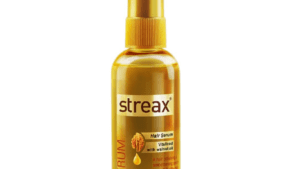Living with anxiety can be a constant battle. Racing thoughts, overwhelming worry, and physical symptoms like muscle tension and sleep disturbances can significantly impact your daily life. While conventional treatments like medication exist, many individuals seek natural or alternative options for managing their anxiety.
This comprehensive guide explores the potential of CBD oil for anxiety relief. We’ll delve into the science behind CBD, its interaction with the body’s systems, and the current research on its effectiveness in managing anxiety symptoms. We’ll also discuss important considerations like potential side effects, choosing quality products, and complementary approaches for a holistic anxiety management plan.
Understanding Anxiety
Anxiety disorders are the most common mental health condition in the United States, affecting over 40 million adults. They manifest in various forms, including:
a. Generalized Anxiety Disorder (GAD):
Excessive, persistent worry about everyday things.
b. Social Anxiety Disorder (SAD):
Intense fear of social situations and scrutiny from others.
c. Panic Attacks:
Sudden episodes of intense fear or discomfort accompanied by physical symptoms like heart palpitations, shortness of breath, and dizziness.
These disorders can significantly impact a person’s quality of life, causing difficulty concentrating, maintaining relationships, and performing daily tasks. Early diagnosis and treatment are crucial for managing anxiety effectively.
Seeking Alternative Options
Conventional anxiety treatments often involve medication. However, some individuals experience side effects with these medications or prefer to explore more natural approaches. This guide delves into the potential of CBD oil, a natural remedy gaining traction for its calming and stress-reducing properties.
Introducing CBD Oil
CBD (cannabidiol) oil is a natural extract derived from the hemp plant, a cousin of marijuana. Unlike THC (tetrahydrocannabinoid), the psychoactive compound in marijuana, CBD does not produce a “high.” CBD oil is available in various forms, including tinctures, capsules, gummies, and vape liquids.
The Science Behind CBD and Anxiety
The human body has an endocannabinoid system (ECS) that plays a crucial role in regulating various functions, including mood, sleep, and pain perception. CBD interacts with the ECS, potentially influencing how the body responds to stress and anxiety. Here’s a look at some potential mechanisms of action:
a. Reducing Stress Hormones:
CBD might help regulate the production of cortisol, a stress hormone associated with anxiety.
b. Enhancing Mood Regulation:
Some studies suggest that CBD may interact with the serotonin system, potentially improving mood and reducing feelings of anxiety.
c. Improving Sleep Quality:
Anxiety can disrupt sleep, and poor sleep can worsen anxiety symptoms. CBD oil might promote better sleep quality, indirectly impacting anxiety levels.
d. Anti-inflammatory Properties:
Inflammation has been linked to anxiety disorders. CBD’s potential anti-inflammatory properties might contribute to its calming effects.
Exploring Research on CBD Oil and Anxiety
Several studies have investigated the effectiveness of CBD oil for managing anxiety symptoms. Here’s a glimpse into the current research landscape:
a. Positive Findings:
Some studies have shown promise for CBD oil in reducing anxiety symptoms. For instance, a 2019 study published in the Journal of the American Psychiatric Association found that CBD helped reduce anxiety in people with SAD before a public speaking task.
b. Need for Further Research:
While initial findings are encouraging, more large-scale, controlled studies are needed to definitively determine the effectiveness of CBD oil for various anxiety disorders.
c. Dosage Considerations:
The optimal dosage for anxiety management likely varies depending on individual factors. Consulting a healthcare professional can help determine the appropriate dosage for you.
Potential Benefits of CBD Oil for Anxiety
Based on current research and anecdotal evidence, CBD oil might offer several potential benefits for anxiety:
a. Reduced Anxiety and Stress Levels:
CBD’s interaction with the ECS might help regulate stress hormones and promote feelings of calmness.
b. Improved Sleep Quality:
By promoting better sleep, CBD oil can indirectly contribute to improved anxiety management.
c. Enhanced Calmness and Focus:
Many users report experiencing a sense of calmness and improved focus after using CBD oil, potentially reducing racing thoughts and worries.
d. Potential Relief from Physical Symptoms:
Anxiety often manifests in physical symptoms like muscle tension and headaches. CBD might offer some relief from these physical manifestations of anxiety.
Important Considerations Before Using CBD Oil
While CBD oil appears to be well-tolerated, it’s crucial to be aware of some important factors before incorporating it into your routine:
a. Risks and Side Effects:
CBD oil generally has a good safety profile. However, it can cause mild side effects like drowsiness, diarrhea, and changes in appetite.
b. Drug Interactions:
CBD oil might interact with certain medications. If you take any medications, consult your healthcare professional before using CBD oil.
c. Dosage and Usage:
There is no one-size-fits-all dosage for CBD oil. Factors like individual body chemistry, anxiety severity, and desired effect influence the appropriate dosage. It’s best to start with a low dose and gradually increase it if needed, while monitoring your response. Consulting a healthcare professional can help determine a personalized dosage plan.
Delivery Methods:
CBD oil comes in various delivery methods, each with its own absorption rate and onset time:
Tinctures:
Held under the tongue for absorption through the sublingual tissues. Offer a faster onset time (around 15 minutes) but may have a shorter-lasting effect.
Capsules:
Swallowed and absorbed through the digestive system. Offer a slower onset time (around 45 minutes to an hour) but have a longer-lasting effect (up to 6 hours).
Gummies:
Eaten like food and absorbed through the digestive system. Offer a slower onset time (similar to capsules) and may have a longer-lasting effect.
Vape Liquids:
Inhaled and absorbed directly into the bloodstream. Offer the fastest onset time (within minutes) but have the shortest-lasting effect.
Choosing Quality CBD Oil
With the growing popularity of CBD oil, choosing a high-quality product is paramount. Here are some factors to consider when selecting a CBD oil brand:
a. Source of Hemp:
Look for organic, non-GMO hemp grown without pesticides or herbicides. This ensures the final product is free of harmful contaminants.
b. Extraction Methods:
CO2 extraction is considered a clean and safe method that preserves the beneficial compounds in CBD oil.
c. Lab Testing:
Choose brands that provide independent lab reports verifying the CBD potency and absence of contaminants like heavy metals, pesticides, and mold.
d. Reputation and Transparency:
Research the brand’s reputation, customer reviews, and overall transparency in their practices. Look for brands that openly share information about their hemp source, extraction methods, and lab testing results.
Complementary Approaches for Anxiety Management
While CBD oil offers promise for managing anxiety symptoms, it can be most effective when combined with a comprehensive approach. Here are some complementary strategies that can help:
1. Therapy:
Cognitive Behavioral Therapy (CBT) is a highly effective therapy for anxiety disorders. It helps individuals identify and challenge negative thought patterns and develop coping mechanisms to manage anxiety symptoms.
2. Mindfulness Techniques:
Mindfulness practices like meditation, yoga, and deep breathing exercises can promote relaxation, reduce stress, and improve focus. By focusing on the present moment, mindfulness techniques can help you manage anxiety-related thoughts and worries.
Lifestyle Changes:
Certain lifestyle modifications can significantly impact your anxiety levels. These include:
a. Regular Exercise:
Physical activity releases endorphins, natural mood elevators that can combat anxiety symptoms. Aim for at least 30 minutes of moderate-intensity exercise most days of the week.
b. Healthy Sleep Habits:
Prioritizing adequate sleep (7-8 hours per night) is crucial for managing anxiety. Establish a regular sleep schedule, create a relaxing bedtime routine, and ensure a sleep-conducive environment.
c. Balanced Diet:
Eating a balanced diet rich in fruits, vegetables, and whole grains provides your body with the nutrients it needs to function optimally. Limiting processed foods, sugary drinks, and excessive caffeine intake can also contribute to managing anxiety.
Disclaimer:
It’s important to note that these approaches are not guaranteed to work for everyone and may need to be tailored to your specific needs. Consulting a healthcare professional or therapist can help you develop a personalized anxiety management plan that incorporates the most effective strategies for you.
Legal Considerations
The legal status of CBD oil varies by region. In the United States, the 2018 Farm Bill legalized the cultivation of hemp, from which CBD is derived. However, CBD regulations can differ at the state level. It is always best to check the laws in your local jurisdiction before purchasing or using CBD oil.
Conclusion
Living with anxiety can be challenging, but there are ways to manage it effectively. CBD oil offers a promising natural approach for some individuals, potentially reducing anxiety symptoms and promoting feelings of calmness and well-being. However, it’s crucial to approach CBD oil with realistic expectations. It’s not a cure-all, and it should not be used as a substitute for professional medical advice.
If you’re considering using CBD oil for anxiety, it’s vital to:
1. Consult your healthcare professional and Discuss your individual needs and medical history to determine if CBD oil is a safe and appropriate option for you. They can also help you determine the appropriate dosage and delivery method.
2. Choose high-quality CBD oil Look for brands that prioritize organic, non-GMO hemp sources, clean extraction methods, and independent lab testing.
3. Start low and go slow, Begin with a low dose of CBD oil and gradually increase it if needed while monitoring your response. This helps determine the optimal dosage for your needs.
4. Be patient, It may take some time to experience the full benefits of CBD oil. Consistency is key.
5. Combine with other approaches, Consider incorporating CBD oil into a comprehensive anxiety management plan that includes therapy, mindfulness techniques, and healthy lifestyle modifications.




